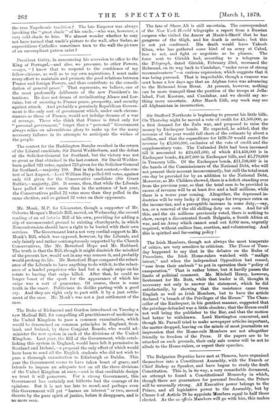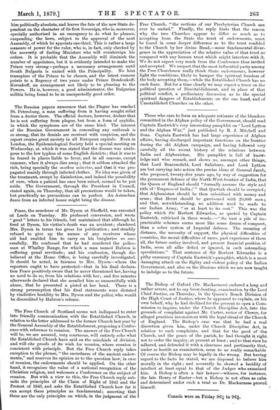The Bulgarian Deputies have met at Tirnova, have organised themselves
into a Constituent Assembly, with the Exarch or Chief Bishop as Speaker, and have begun to study the draft Constitution. This is, in its way, a very remarkable document, an attempt to found a Constitutional Monarchy in which, though there are guarantees for personal freedom, the Prince will be unusually strong. All Executive power belongs to the Prince, and all legislative power to the Assembly, but by Clause 5 of Article 79 he appoints Members equal to half those elected. As the es officio Members will go with him, this makes
him politically absolute, and leaves the fate of the new State de- pendent on the character of its first Sovereign, who is, moreover, specially authorised in an emergency to do what he pleases, suspending the laws, subject to the approval of the next Assembly, of which he appoints one-third. This is rather a large measure of power for the ruler, who is, in fact, only checked by -the necessity of finding Ministers who will countersign his -orders. It is probable that the Assembly will diminish the number of appointees, but it is evidently intended to make the Prince very strong—perhaps a necessary arrangement until South Bulgaria is united with the Principality. No hint transpires of the Prince to be chosen, and the latest rumour points to a Regency of two years under Prince Dondoukoff- Korsakoff, an arrangement not likely to be pleasing to the Powers. He is, however, a good administrator, the Bulgarian militia being found to be in unexpectedly good order.



































 Previous page
Previous page